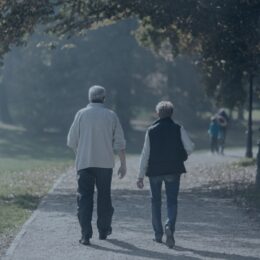
By Jennifer L. Boen
Ministry Team Writer
We are called by God to be social—to gather in His name. But, as we age, circumstances can draw us away from our church and our community. Loneliness sinks in, which can negatively affect our mental health.
Changes in health, mobility, and independence all affect one’s ability to cope with day-to-day life, says Dianne Stitzer, a mental health counselor with more than four decades of experience. She currently runs a nonprofit faith- based organization called Mentoring Moms, out of Fort Wayne, Ind., which provides programming for women seeking to connect with other women and desiring to grow in their faith. Most have similar histories of addiction, being in abusive relationships, and other circumstances that have marginalized them and caused them to feel unloved and unsupported.
“Depression is not part of the normal aging process,” Stitzer said. “Physical health conditions can affect our mental health. If signs of depression or anxiety are noticed by you, a family member, or caregiver, the first step is a check-up with your primary care doctor. Chronic diseases such as diabetes, COPD, and cardiac conditions, compounded with increased isolation and loneliness, caregiver needs, money worries, and loss of independence, are a recipe for depression and/or anxiety.”
Certain medications can cause mood changes. For example, beta blockers, used to control heart rhythm, may increase the risk of depression. Heart palpitations can be caused by anxiety as well as the antihistamine Benadryl.
“As I age and observe other people aging, I often see that we’re told what to do and not included in the decision making,” Stitzer said. “Then we begin thinking we’re not any good to anybody. We’ve got to have worth.”
Through her many years as a counselor and now her work with Mentoring Moms, Stitzer has found “there is power in the group.” Staying connected to people is crucial in preventing depression and anxiety. She notes that losing the ability to drive is a pivotal point in isolation among older adults.
People need to find a group in their church or neighborhood or at a community center that offers a safe, welcoming place to gather and make friends. Mentoring Moms offers just that, she says, noting those who still are driving pick up those who don’t.
“They make connections at the weekly meetings and share phone numbers,” she said.
The women share a meal, have a time of singing and praise, have a Bible study, and share prayer requests. They bring a favorite knitting or crocheting project or someone teaches a new craft.
Stitzer says staying connected to one another is a lifeline and truly “good medicine” to ward off loneliness and depression.
SIGNS OF DEPRESSION
► Apathy—not caring about anything
► Loss of interest in something you once really enjoyed
► Persistent sadness
► Irritability
► Trouble concentrating; other cognitive changes
► Fatigue, low energy
► Insomnia or sleeping most of the time
► Overeating or decrease in appetite
► A sense of hopelessness
► Feelings of worthlessness or guilt
► Slower speech or movement
► Digestive problems that persist
Source: National Council on Aging, https://www.ncoa.org
If you are feeling signs of depression, please talk to a trained counselor for help.
National Alliance of Mental Illness NAMI.org | 1-800-950-6264


